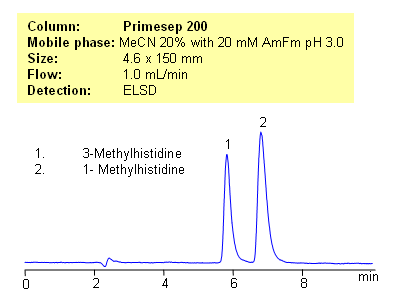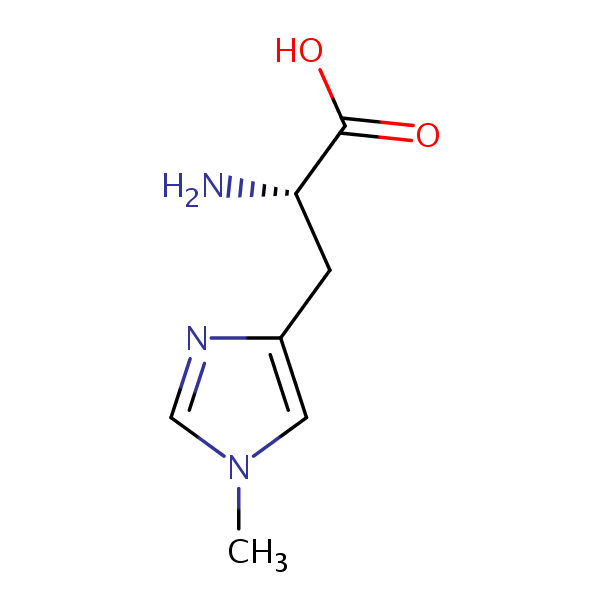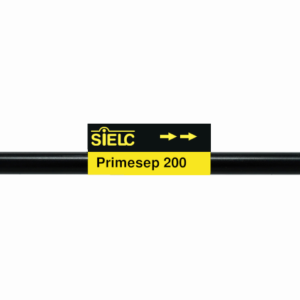| CAS Number | 332-80-9 |
|---|---|
| Molecular Formula | C7H11N3O2 |
| Molecular Weight | 169.185 |
| InChI Key | BRMWTNUJHUMWMS-LURJTMIESA-N |
| LogP | -1.50 |
| Synonyms |
|
Applications:
HPLC Separation of 1-Methylhistidine and 3-Methylhistidine on Primesep 200
July 10, 2012

Application Notes: Methylhistidines are polar amino acids with very similar structures. Methylhistidines are methylated derivative of histidine found in actin. N-methylhistidine is released into urine after the breakdown of actin and myosin. Urinary output of N-methylhistidine is a reliable index of the rate of myofibrillar protein breakdown in musculature. The method for separation of 1-methylhistidine and 3-methylhistidine on Primesep 200 column was developed with LC/MS compatible conditions. This method can be used for quantitation of methylhystidines in urine and other biofluids.
Application Columns: Primesep 200
Application compounds: 1-Methylhistidine, 3-Methylhistidine
Detection technique: UV, LC/MS, ELSD/CAD
| Column | Primesep 200, 4.6×150 mm, 5 µm, 100A |
| Mobile Phase | MeCN/H2O – 20/80% |
| Buffer | AmFm pH 3.0- 20 mM |
| Flow Rate | 1.0 ml/min |
| Detection | ELSD |
| Class of Compounds |
Amino acid , Acid, Hydrophilic, Ionizable |
| Analyzing Compounds | 1-Methylhistidine, 3-Methylhistidine |
Application Column
Primesep 200
The Primesep family of mixed-mode columns offers a wide variety of stationary phases, boasting unprecedented selectivity in the separation of a broad array of chemical compounds across multiple applications. Corresponding Primesep guard columns, available with all stationary phases, do not require holders. SIELC provides a method development service available to all customers. Inquire about our specially-tailored custom LC-phases for specific separations.
Select options3-Methylhistidine
UV Detection



